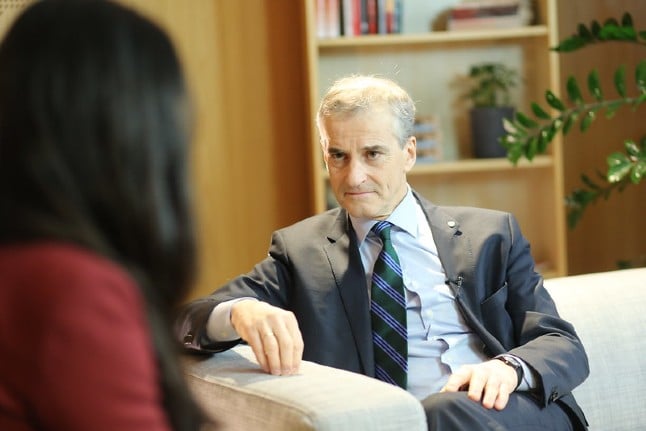ATTACK
Norway ‘forced into stricter lockdown’ by hospital cuts: opposition
Norway's opposition has accused the government of being forced into imposing a stricter lockdown because it was too ill prepared for the coronavirus pandemic.
Published: 29 April 2020 12:17 CEST

Jonas Gahr Støre, leader of the Labour Party, told Dagbladet that the government had been unprepared. Photo: Labour Party
“The choice of the knock-down strategy was partly a result of the fact that we were too poorly prepared,” Jonas Gahr Støre, leader of the Labour Party, said in an interview with the Dagbladet newspaper.
Gahr Støre's attack signalled a dramatic end to more than six weeks of effective political ceasefire over the government's response to the coronavirus pandemic.
The Labour party even voted for the government's emergency coronavirus law, despite harsh criticism from some circles.
But in the interview, Gahr Støre said he believed the government's handling of the crisis, especially in the way that it prepared for it in advance, had showed severe shortcomings. .
He said that hospitals in Norway had been in no position to care for a large number of critically ill patients, due to the reductions in real healthcare spending seen during six years of Conservative-led centre-right rule.
“A hospital which has had budget cut after budget cut is not going to build up its own warehouse of protective equipment for infection control at the expense of cancer treatment or maternity ward staffing,” he told the newspaper.
“The government's reaction when it realised the pandemic was serious was to take national control of all of these things, because the preparedness at that point was mostly just on paper.”
Norway's health minister Bent Høie rejected the claim that healthcare had been underfunded under the Conservatives.
“Støre's criticism on cuts in hospital budgets is incorrect,” he said. “In 2020 alone we have strengthened hospitals with 1.5bn kroner.”
In the interview, Støre said that the government was continuing to mismanage the crisis, pointing to “uncertainties in the division of responsibility, reduced budgets for hospitals, lack of a national plan and continued scarcity of contamination equipment in the municipalities”.
“The question has never been whether a pandemic would come, but when it would come,” he concluded. “And when that happened, we weren't well prepared enough.”
Url copied to clipboard!


 Please whitelist us to continue reading.
Please whitelist us to continue reading.
Member comments